
  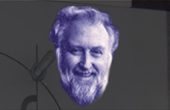 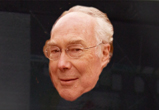 
      
G r e a t s o f o f W a l e s W a l e s
A W A R D S
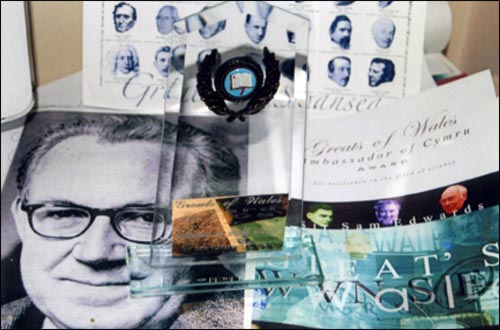
P r o f e s s o r
 S a m u e l S a m u e l F r e d e r i c k F r e d e r i c k E d w a r d s E d w a r d s F. R. S
F. R. S
|
At the young age of 45, back in time in the month of October and in the year
nineteen hundred and seventeen three, Professor Samuel Frederick Edwards who was
married with three daughters and a son and was living in Newnham in West
Cambridge was to become Chairman of the Science Research Council.
This is what they had to say about this most learned of men;
“Professor Edwards is
John Humphrey Plummer Professor of Physics at Cambridge University. He was
educated at Swansea Grammar School, Gonville and Caius College, Cambridge, and
Harvard. Before being appointed to his present position he held posts at Birmingham
and Manchester Universities. He was elected a Fellow of the Royal Society in 1966
and has been a Vice-President of the Institute of Physics since 1970. He served as a
member of the Council of the European Physical Society from 1969-71. He has been
a member of various committees of the Science Research Council since 1968 and of
the Council's Science Board since 1970. In 1971 he was appointed a member of the
University Grants Committee”.
Rather remarkably, it was mentioned also that, “Professor Edwards' interests lie
mainly in chemical physics where he studies the properties of rubbers and plastics,
basing their properties on their molecular architecture. He also has an interest in the
application of modern theoretical physics to industrial problems, and has collaborated
in the study of problems arising from reactor design and plasma physics”.
It was also
pointed out that “his relaxations are found in gardening and chamber music”. Mmh!

It almost sounds unremarkable does it not ?. Perhaps then, in 2001 we get perhaps a broader
perspective of his accomplishments via The Royal Society when they awarded him
their highest and most prestigious award, the Royal Medal;
This was…..”in recognition of his enormous influence across a wide spectrum of
physical sciences, particularly theoretical condensed matter physics. His clear vision has had a
major impact on experimentation and on scientific and industrial policy and he is largely
responsible for the recognition of the fundamental challenges of complex materials and the
provision of theoretic tools to tackle them and the inspiration for their application”.

That perhaps puts this Great Welshman’s achievements a little more into perspective.
Let us take a further look shall we?
I first became aware of Sir Sam Edwards in the
international Who’s Who in the early 90’s and then again then in a sentence, as
another name in a short right-up by the infectious, the ebullient but sadly, late
Professor Phil Williams in Planet International magazine in the late 1990’s. His
genius has intrigued me since.
Samuel Frederick Edwards was born in Abertawe and
educated at Swansea Grammer School. He then went on to Gonville and Caius
College, University of Cambridge, England and Harvard University, United States.
He did his thesis under Julian Schwinger on the structure of the electron, and
incredibly developed the functional integral form of field theory at this early stage in
his career. Professor Edwards' work in condensed matter physics commenced in 1958,
well before I was born(!) with a paper which showed that statistical properties of
disordered systems (glasses, gels etc) could be described by the Feynman diagram and
path integral methods invented in quantum field theory.
Incredibly, we find that this
groundbreaking paper started a new way of looking at complex matter which
remarkably is still all pervading. During the following 35 years Professor Edwards
has worked in the theoretical study of complex materials such as polymers, gels,
colloids and similar systems.
He has in his time been the Chairman of the Science Research Council 1973-1977
and between 1984-1995 Edwards was Cavendish Professor of Physics. He is a member of
the Board of Sponsors of The Bulletin of the Atomic Scientists and Past President of
Cambridge Society for the Application of Research.
In the year 2004, a book entitled
"Stealing the gold: a celebration of the pioneering physics of Sam Edwards" was
published. I believe every aspiring student of the sciences in Wales should buy, place
it in their Welsh library and read what is virtually an euphoric tribute to Professor Edwards.
It is quite simple. The collection of trails blazed by Sam Edwards during half a
century of fundamental research in theoretical physics is truly astonishing. He led
theoretical physics into uncharted territories from his roots in quantum field theory —
beginning with his seminal work on the transport properties of disordered metals, and
continuing to the present day with his ground-breaking efforts to create a statistical
mechanics of granular materials. Along the way, he and his collaborators developed
the first modern theory of polymers in solution and in the rubbery state; created and
explored the tube concept, which has had momentous implications for understanding
the viscoelasticity of polymer melts; formulated the spin-glass problem and provided
its first solutions using the method of replicas — work that has had profound
implications in areas as diverse as combinatorial optimization, neural networks, as
well as glassy systems; made important contributions to the still-unsolved problem of
Navier-Stokes turbulence; and initiated the recent explosion of activity in
the dynamics of growing interfaces.

This book celebrates Sam's impact by collecting together and reprinting
eleven of his papers, each of which played a seminal role and started a new field
of study, each followed by one or more original articles by experts in the relevant
fields demonstrating how the topics Sam started have developed to the modern day.
He must surely have been presented with awards? Yes indeed! Thankfully he received
the Davy Medal (1984) the Boltzmann Medal of the International Union of Pure
and Applied Physics (1995) and the Royal Medal (2001) of the Royal Medal of Royal
Society as well as the Dirac Medal of the International Centre for Theoretical Physics in 2005
for being a founder of the modern discipline of "soft" condensed matter physics
with fundamental contributions to polymer physics, spin glass theory and the physics
of granular matter.
To think that this Genius of a Welshman came from a small part of
Wales and another product of Swansea Grammer School, hopefully will
fill you with pride and inspire you to excellence in your career path.

We are thankfully told that he remains a foremost scientist in the fields of statistical
physics and condensed matter physics and his forward-looking ideas that have
become pillars of theoretical physics. Think about that one Cymro-cats and
international friends!? In-fact, Sir Sam Edwards goes down in history as one of the
founding fathers of condensed matter physics. It is also my opinion that one day soon
he shall join the long yet appallingly neglected Welsh contribution of those awarded a
Nobel Laureate. Watch this space. The man is a genius. It is therefore only fitting
to present the
G r e a t s o f o f W a l e s W a l e s
A m b a s s a d o r o f o f  C y m r u C y m r u  A w a r d A w a r d
f o r
G e n i u s i n i n S c i e n c e S c i e n c e
t o
 P r o f e s s o r P r o f e s s o r  S i r S i r S a m S a m E d w a r d s E d w a r d s
May I now briefly take you away from this precious and poignant moment in World-Welsh-Time;
The year is 2008. Yes World-Welsh Month was but one man’s dream. Yet it was based on our history and a Welsh peasants quest to bring a Welsh accountability to honoring our, forgotten, uncelebrated and unknown Welsh as well as World-Welsh achievers to this new generation
There shall be bigger and better celebrations, I feel sure. Why not then gather with me and join me. I would firmly suggest this as a reminder to those who appear to come across as Welsh unaccountables. Stand in the way of no child or young adult attempting to make differences here in Cymru. Why would you wish to let yourself as well as your country down? Bring a new Welsh dignity. An important lesson must be learnt. Strangle not the Welsh child at birth. Open the gates. Release this generation. Release them from them their shackles and free the Children of Wales and they shall walk Wales and the World a more accountable and importantly, dignified race of people.
|
|
|
|

|
 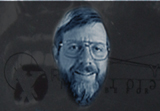 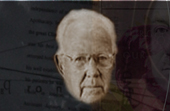 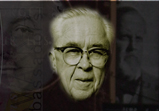 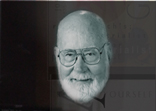
|
|